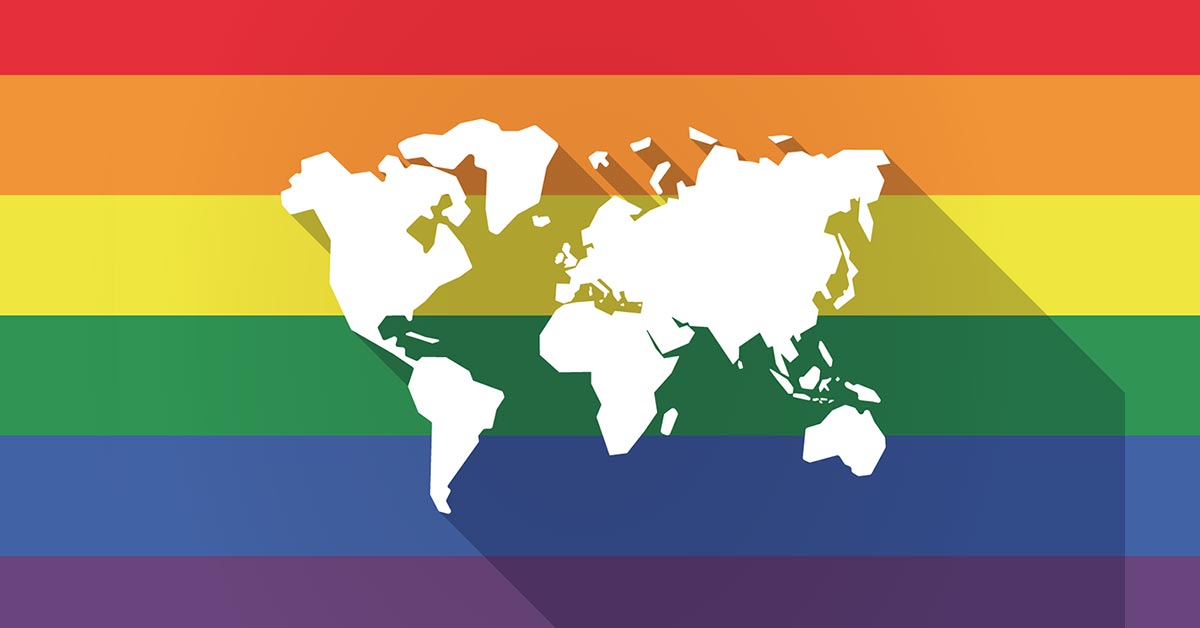Global LGBTI Equality: 62 Countries Continue to Outlaw Same-Sex Intimacy

As the world marks International Pride Month this June, a new report on LGBTI equality reveals that one-third of the globe continues to criminalise consensual same-sex sexual acts.
ILGA World has released its Laws on Us report, documenting legal developments affecting LGBTI people in 193 UN member States and more jurisdictions between January 2023 and April 2024.
It’s found that relentless opposition is marring progress made towards equal rights for LGBTI people, as lesbian, gay, bisexual, trans, and intersex lives continue to be at the centre of legal debates across the world.
“Our communities celebrated important victories during the past two years,” said Lucas Ramón Mendos, Research manager at ILGA World and Laws on Us’ lead co-author. “And yet, resistance and detraction have materialised almost everywhere.”
To date, one-third of the world continues to criminalise consensual same-sex sexual acts: 60 UN member States by law, and 2 in practice, relying on other laws.
The death penalty is the legally prescribed penalty for consensual same-sex sexual acts in 7 UN member States: Brunei, Mauritania, Iran, Nigeria (12 provinces), Saudi Arabia, Uganda, and Yemen. In 5 more (Afghanistan, Pakistan, Qatar, Somalia, and the United Arab Emirates), there is no full legal certainty.
Although three UN member States (Singapore, Mauritius, and Dominica) and one non-UN member (Cook Islands) have decriminalised since the beginning of 2023, regressive, regional developments have been emerging.
During the same period, Uganda imposed the death penalty for some forms of consensual same-sex sexual acts, and Iraq formally codified the criminalisation that already existed.
Reports surfaced of extreme forms of capital punishment actively enforced in Afghanistan and Yemen. Regressive bills were announced in at least five UN member States, and discussions to criminalise or aggravate penalties took place in four more.
Positive Advances Celebrated
Alongside the reversals, there have also been positive advances in many parts of the world. Seventeen States now allow people to see their gender reflected in their documents based on self-identification at the national level.
Despite the escalating anti-gender movement and the setbacks seen in many jurisdictions, since January 2023 five more UN member States have adopted legal gender recognition based on the principle of self-identification: Ecuador, Finland, Germany, New Zealand, and Spain—along with the state of Yucatán in Mexico. Challenges to surgical requirements have succeeded within diverse court systems, particularly in East Asia.
Nine UN member States now have nationwide protections from unnecessary, non-consensual interventions on intersex minors, with Chile, Spain, and jurisdictions like the Australian Capital Territory and the Balearic Islands joining the list since the beginning of 2023.
However, during the same period, Russia and several US states regressed with laws that ban gender-affirming care and promote interventions on intersex minors at the same time.
Freedom of Speech Under Threat
In a worrying development, laws regulating speech, or restricting organisations’ spaces to advocate the rights of entire communities have become increasingly prominent mechanisms for criminalisation. At least 59 UN member States present legal barriers to registering and operating organisations openly advocating the rights of LGBTI people
“We have seen an alarming rise in restrictions on freedom of expression and association,” confirmed Laws on Us lead co-author Dhia Rezki Rohaizad. “This has resulted in censorship, arrests, and persecution in many UN member States.”
Over the past 16 months, for example, Jordan, Kyrgyzstan and Uganda have formally implemented legal provisions targeting the so-called “promotion” of “homosexuality”. Belarus has begun to classify content related to sexual and gender diversity as “pornography”, and Russia designated the “international LGBT movement” as “extremist”.
“Even talking about our lives in public is becoming increasingly difficult in a growing number of States. This trend is extremely concerning: history has shown us multiple times that the advances our movements have made worldwide are often just an election or a downturn away from being reversed,” commented Julia Ehrt, Executive Director at ILGA World.
Conversion Therapy, Hate Crimes and Same-Sex Unions
The tension between actual or potential progress and acute setbacks is visible also in other legislative areas. While the number of UN member States enacting regulations against “conversion therapies” continued to grow, State-sponsored “rehabilitation” made inroads in Africa and advanced as official policy in Malaysia.
Progress in enacting new anti-discrimination legislation remained limited, but multiple bills await legislative approval in several countries. The same is true for hate crime legislation inclusive of sexual orientation, gender identity and expression, and sex characteristics, and for provisions sanctioning incitement to hatred, violence, and discrimination on the same grounds.
When it comes to the recognition of same-sex couples, during the past sixteen months four UN member States (Andorra, Estonia, Greece, and Slovenia) made marriage equality a reality, and Nepal issued an interim order to facilitate such unions. Bolivia and Latvia legalised same-sex civil unions, and Japan has seen several prefectures follow suit.
Overall, ILGA World’s Laws on Us report paints the complex picture of an uphill journey towards progress for LGBTI people globally.
“Every day, the lives of LGBTI people are used as wedge issues to distract, mobilise, and divide. In concerning times like these, it is paramount to have reliable evidence on the laws worldwide affecting our communities and a clear understanding of the challenges that lie ahead and around us,” said ILGA World co-Secretaries General Luz Elena Aranda and Tuisina Ymania Brown.
Leave a Reply